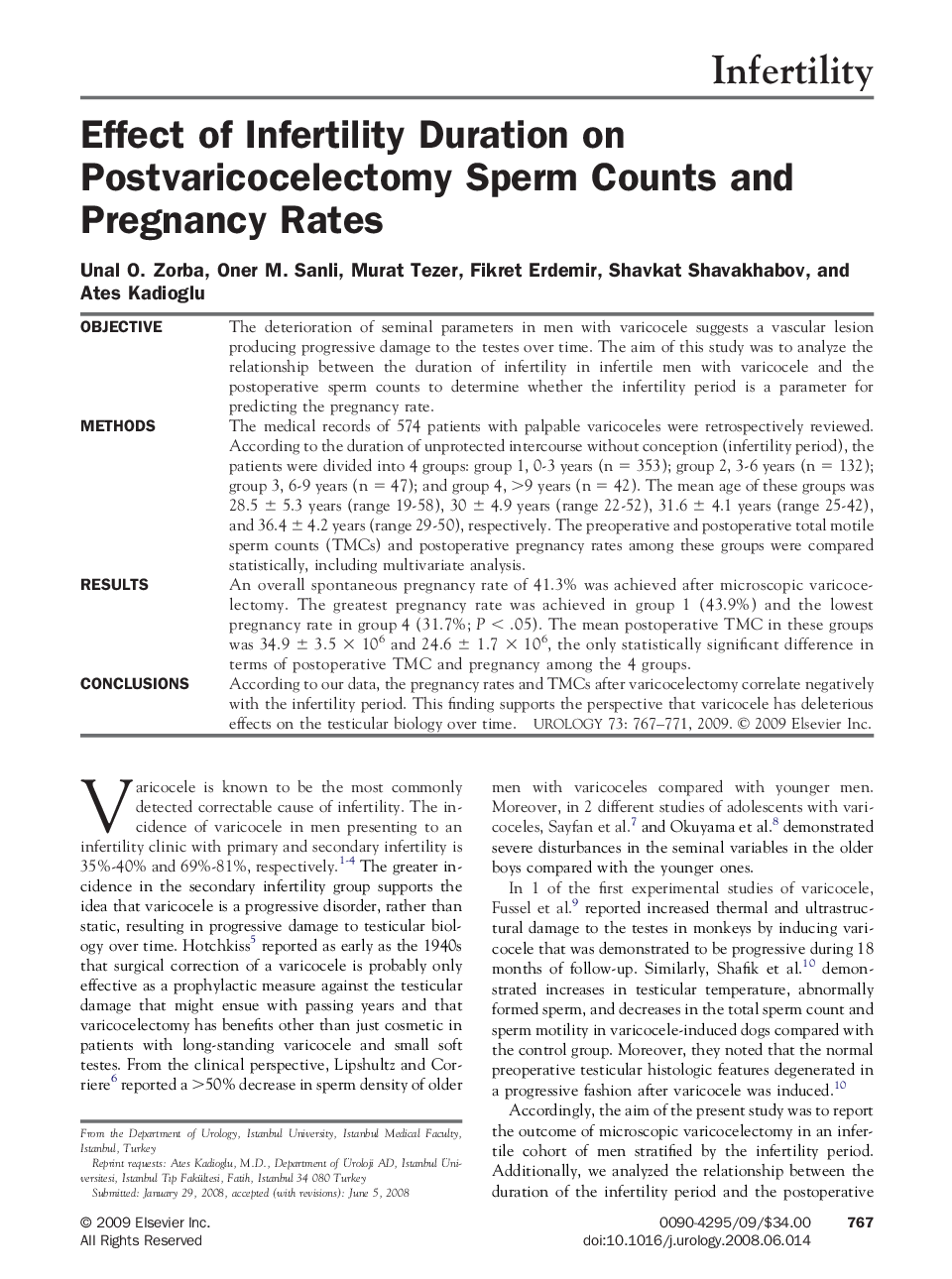| Article ID | Journal | Published Year | Pages | File Type |
|---|---|---|---|---|
| 3905925 | Urology | 2009 | 5 Pages |
ObjectiveThe deterioration of seminal parameters in men with varicocele suggests a vascular lesion producing progressive damage to the testes over time. The aim of this study was to analyze the relationship between the duration of infertility in infertile men with varicocele and the postoperative sperm counts to determine whether the infertility period is a parameter for predicting the pregnancy rate.MethodsThe medical records of 574 patients with palpable varicoceles were retrospectively reviewed. According to the duration of unprotected intercourse without conception (infertility period), the patients were divided into 4 groups: group 1, 0-3 years (n = 353); group 2, 3-6 years (n = 132); group 3, 6-9 years (n = 47); and group 4, >9 years (n = 42). The mean age of these groups was 28.5 ± 5.3 years (range 19-58), 30 ± 4.9 years (range 22-52), 31.6 ± 4.1 years (range 25-42), and 36.4 ± 4.2 years (range 29-50), respectively. The preoperative and postoperative total motile sperm counts (TMCs) and postoperative pregnancy rates among these groups were compared statistically, including multivariate analysis.ResultsAn overall spontaneous pregnancy rate of 41.3% was achieved after microscopic varicocelectomy. The greatest pregnancy rate was achieved in group 1 (43.9%) and the lowest pregnancy rate in group 4 (31.7%; P < .05). The mean postoperative TMC in these groups was 34.9 ± 3.5 × 106 and 24.6 ± 1.7 × 106, the only statistically significant difference in terms of postoperative TMC and pregnancy among the 4 groups.ConclusionsAccording to our data, the pregnancy rates and TMCs after varicocelectomy correlate negatively with the infertility period. This finding supports the perspective that varicocele has deleterious effects on the testicular biology over time.
